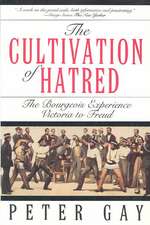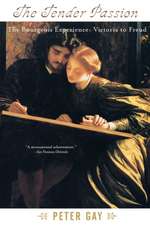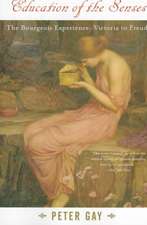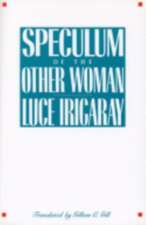The Birth of Tragedy: Dover Thrift Editions
Autor Friedrich Wilhelm Nietzsche, Dover Thrift Editionsen Limba Engleză Paperback – 31 mai 1995 – vârsta de la 14 ani
Din seria Dover Thrift Editions
-
 Preț: 39.39 lei
Preț: 39.39 lei -
 Preț: 67.45 lei
Preț: 67.45 lei -
 Preț: 25.15 lei
Preț: 25.15 lei -
 Preț: 52.41 lei
Preț: 52.41 lei -
 Preț: 25.77 lei
Preț: 25.77 lei - 36%
 Preț: 61.44 lei
Preț: 61.44 lei - 16%
 Preț: 21.50 lei
Preț: 21.50 lei -
 Preț: 43.52 lei
Preț: 43.52 lei - 16%
 Preț: 21.16 lei
Preț: 21.16 lei -
 Preț: 33.19 lei
Preț: 33.19 lei - 16%
 Preț: 66.56 lei
Preț: 66.56 lei -
 Preț: 34.65 lei
Preț: 34.65 lei - 17%
 Preț: 31.67 lei
Preț: 31.67 lei -
 Preț: 55.06 lei
Preț: 55.06 lei -
 Preț: 29.49 lei
Preț: 29.49 lei -
 Preț: 49.32 lei
Preț: 49.32 lei -
 Preț: 40.20 lei
Preț: 40.20 lei -
 Preț: 40.44 lei
Preț: 40.44 lei - 17%
 Preț: 18.21 lei
Preț: 18.21 lei - 55%
 Preț: 16.97 lei
Preț: 16.97 lei -
 Preț: 37.31 lei
Preț: 37.31 lei - 20%
 Preț: 16.43 lei
Preț: 16.43 lei - 16%
 Preț: 53.42 lei
Preț: 53.42 lei -
 Preț: 32.78 lei
Preț: 32.78 lei - 14%
 Preț: 27.66 lei
Preț: 27.66 lei - 17%
 Preț: 31.13 lei
Preț: 31.13 lei -
 Preț: 56.50 lei
Preț: 56.50 lei -
 Preț: 30.53 lei
Preț: 30.53 lei -
 Preț: 38.35 lei
Preț: 38.35 lei - 15%
 Preț: 40.71 lei
Preț: 40.71 lei - 13%
 Preț: 28.46 lei
Preț: 28.46 lei -
 Preț: 76.91 lei
Preț: 76.91 lei -
 Preț: 83.12 lei
Preț: 83.12 lei -
 Preț: 27.45 lei
Preț: 27.45 lei - 13%
 Preț: 34.43 lei
Preț: 34.43 lei -
 Preț: 170.50 lei
Preț: 170.50 lei -
 Preț: 44.94 lei
Preț: 44.94 lei -
 Preț: 30.53 lei
Preț: 30.53 lei -
 Preț: 39.62 lei
Preț: 39.62 lei -
 Preț: 26.81 lei
Preț: 26.81 lei -
 Preț: 27.45 lei
Preț: 27.45 lei -
 Preț: 34.87 lei
Preț: 34.87 lei -
 Preț: 32.03 lei
Preț: 32.03 lei - 17%
 Preț: 18.15 lei
Preț: 18.15 lei -
 Preț: 28.44 lei
Preț: 28.44 lei -
 Preț: 56.93 lei
Preț: 56.93 lei - 17%
 Preț: 20.71 lei
Preț: 20.71 lei -
 Preț: 25.35 lei
Preț: 25.35 lei - 16%
 Preț: 66.10 lei
Preț: 66.10 lei
Preț: 16.17 lei
Preț vechi: 31.35 lei
-48% Nou
Puncte Express: 24
Preț estimativ în valută:
3.09€ • 3.25$ • 2.56£
3.09€ • 3.25$ • 2.56£
Carte disponibilă
Livrare economică 27 martie-03 aprilie
Livrare express 12-18 martie pentru 28.35 lei
Preluare comenzi: 021 569.72.76
Specificații
ISBN-13: 9780486285153
ISBN-10: 0486285154
Pagini: 96
Dimensiuni: 132 x 210 x 7 mm
Greutate: 0.08 kg
Ediția:Revised
Editura: Dover Publications
Seria Dover Thrift Editions
Locul publicării:United States
ISBN-10: 0486285154
Pagini: 96
Dimensiuni: 132 x 210 x 7 mm
Greutate: 0.08 kg
Ediția:Revised
Editura: Dover Publications
Seria Dover Thrift Editions
Locul publicării:United States
Descriere
Nietzche's 1st great book is here with one of his last. Together they sound the themes that remain at the heart of present day philosophical and cultural debates and dilemmas.
Textul de pe ultima copertă
Among the most influential philosophers of modern times, Friedrich Nietzsche (1844-1900) declared in this classic study that Greek tragedy achieved greatness through a fusion of elements of Apollonian restraint and control with Dionysian components of passion and the irrational. In Nietzsche's eyes, however, Greek tragedy had been destroyed by the rationalism and optimism of thinkers like Socrates. Nevertheless, he found in these ancient works the life-affirming concept that existence is still beautiful, however grim and depressing it may sometimes be. These and many other ideas are argued with passionate conviction in this challenging book, called by British classicist F. M. Cornford "a work of profound imaginative insight, which left the scholarship of a generation toiling in the rear." Unabridged Dover (1995) republication of the translation by Clifton P. Fadiman, 1927. New introductory note.





















